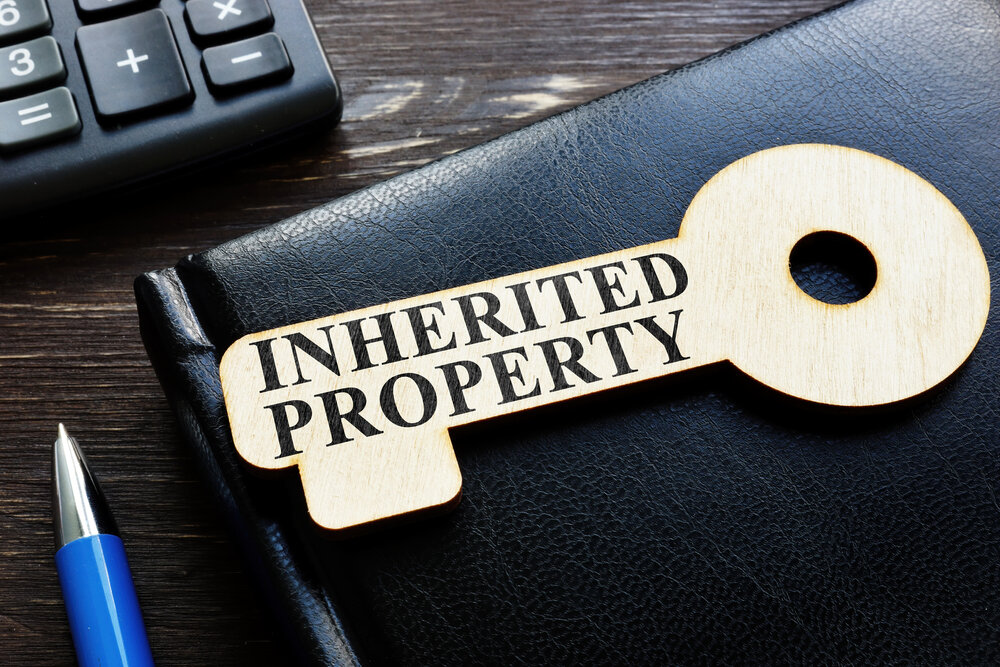Selling an inherited property in Washington state comes with a mix of emotions and paperwork. You might feel overwhelmed looking at the stack of documents needed to sell that inherited house or land.
Don’t worry! This guide will walk you through exactly what you need to sell your inherited real estate.
Washington has specific requirements that might differ from what you’ve heard from friends in other states. You need to understand these local requirements to prevent headaches as you prepare to sell your inherited property.
The Probate Process for Inherited Property

Probate is the legal process that validates a will and oversees the distribution of assets. You might need to complete this process before you can sell your inherited real estate in Washington state.
Some properties bypass probate completely, so you can save time and money. Others require the full process before you can legally sell your home.
Learning about these probate rules is essential when preparing to sell inherited real estate.
When Is Probate Required in Washington?
You can avoid probate in Washington if the property was:
- Held in joint tenancy with right of survivorship
- Part of a living trust
- Transferred through a transfer-on-death deed
However, if you inherited property through a standard will or there was no will at all, your real property will likely go through probate. The court needs to verify that everything is legitimate before you can sell. Working with experienced real estate professionals can help you go through this process.
Washington state offers a simplified probate process for estates valued under $100,000. This can significantly reduce your waiting time and costs when you’re looking to sell your inherited home.
Probate Documentation Checklist
You’ll need these essential documents for the probate process:
- Original will (not a copy)
- Certified copy of the death certificate
- Petition for probate
- Letters Testamentary or Letters of Administration
- Estate inventory
- Notices to creditors
- Final accounting for the court
These documents establish your legal authority to sell the inherited property. With them in hand, you’re one step closer to selling the house at a competitive price.
Essential Legal Documents for Selling Inherited Property
Once you’re through probate (or if you’ve skipped it), you’ll need several legal documents to finalize your property sale. These papers prove your ownership rights and ability to transfer the real estate cleanly to a buyer.
1. Transfer of Ownership Documentation
The most important document is proof that the property is legally yours. This might be a personal representative’s deed from probate or a trustee’s deed from a trust.
You’ll need to record this with the county where the real estate sits in order to create a public record of your ownership. This is a crucial step when you want to sell your inherited home.
If you’re sharing the inheritance with others, you might need a family settlement agreement showing everyone agrees to the sale. This prevents headaches later if someone changes their mind about the decision to sell.
2. Title Documentation Requirements
Clean title is non-negotiable when selling real estate. You’ll need a preliminary title report showing the property’s ownership history. It will also show any existing liens or claims against it. This reveals if there are mortgages, tax liens, or other issues you’ll need to clear before selling.
A title insurance policy also provides protection for both you and eventually the buyer. It’s worth the investment for the peace of mind it brings to everyone involved in the real estate transaction.
3. Property Deed Documentation
The property deed itself requires special attention. You’ll need both the original deed showing how the deceased acquired the real estate and documentation showing the transfer to you.
Washington state has specific requirements for deeds to be legally valid. They must include a proper legal description of the property boundaries, not just a street address.
It’s highly suggested working with a title company that buys homes in Burien or estate professionals can help ensure you meet all these requirements before you sell.
Required Tax Documentation When Selling Inherited Washington Property

Taxes are unavoidable when selling an inherited property. Being prepared with the right documentation helps you avoid penalties later when you sell.
A. Capital Gains Tax Documents
You’ll need documentation showing the property’s “stepped-up basis” or its value on the date of death. This might include a professional appraisal from when you inherited the real estate or comparable sales data from that time.
Keep records of any improvements you’ve made to the property since inheriting it, as these can adjust your tax basis and potentially impact gains tax liability.
Also, gather documentation of selling expenses since these can offset any potential capital gains tax when you sell your inherited estate.
B. Estate Tax Documentation
If the estate was large enough to trigger Washington’s estate tax, you’ll need the filed estate tax return (Washington Estate and Transfer Tax Return) and proof that any estate taxes were paid.
Washington’s estate tax applies to estates worth more than $2.193 million. Understanding these financial obligations is crucial before you sell inherited real estate.
C. Property Tax Records
Don’t forget to gather the most recent property tax statements and proof of payment. You’ll need to show that property taxes are current or make arrangements to pay any delinquent taxes from the proceeds at closing.
Tax proration documents will determine how the property taxes are split between you and the buyer at closing when you sell your home.
When Multiple Heirs Inherit Washington Property
Selling inherited property gets more complicated when multiple heirs are involved. You’ll need to know how the property is titled (whether as “tenants in common” or “joint tenants with rights of survivorship”) as this affects your options to sell.
If everyone wants to sell, get a written agreement signed by all heirs. This document should clearly state how you’ll divide the proceeds. Even in close families, having this in writing prevents problems down the road when you sell inherited homes.
When one heir wants to buy out the others, you’ll need formal buyout agreements documenting the arrangement. These should specify the value of each share and payment terms.
For situations where heirs can’t agree, you might need documentation for a partition action, which legally forces the sale of the property and divides the proceeds.
RCW 82.45.197: Legislative Requirements for Inherited Property Sales
Washington law RCW 82.45.197 outlines specific documentation needed to qualify for real estate excise tax exemptions on inherited property.
The documentation varies based on how you inherited the property. For community property agreements, you’ll need the recorded agreement and a death certificate.
For trusts, you’ll need the death certificate and trust documents showing your rights to the property. This is a necessary paperwork required to sell inherited real estate in Washington state.
When probate wasn’t completed, a “lack of probate affidavit” with the death certificate can document your inheritance rights.
All this documentation must be recorded with the county auditor to create a clear public record of your ownership before you sell.
Property Disclosure Documents When Selling Inherited Houses

When selling an inherited house in Washington, you can’t skip the property disclosure requirements. Even though you might not have lived in the property, you’re still responsible for disclosing what you know about its condition.
Washington requires sellers to complete a Seller Disclosure Statement, commonly called Form 17. This multi-page document asks detailed questions about the property’s condition, including structural issues, water damage, pest problems, and more.
As an heir, you might find yourself answering “don’t know” to many questions, which is perfectly acceptable when it’s the truth. Providing honest disclosures is essential when you sell your inherited home.
You should disclose any material facts you do know about the property. If the previous owner mentioned a leaky roof or you’ve discovered foundation issues, you need to share this information.
Hiding known problems could lead to legal trouble down the road and impact the sale price when you sell.
Timeline for Selling Inherited Property in Washington
Selling inherited property often takes longer than a typical real estate transaction. If probate is required, expect to wait at least four months before you can list the property to sell.
Washington’s probate process includes a four-month creditor claim period that can’t be shortened. During this time, you can begin preparing the real estate for sale, but you won’t be able to close on a sale until probate is complete.
The document preparation phase typically takes two to four weeks. During this time, you’ll gather all necessary paperwork, including death certificates, court documents, and property records.
You might need to request some documents from government agencies, which can add to your timeline before you can sell your home.
Once you’ve listed the property, the traditional selling process in Washington takes an average of 45-60 days from accepted offer to closing. This includes the buyer’s inspection period, financing approval, and final document preparation.
Being prepared with all your inheritance documentation can help prevent delays during this phase when you sell your Washington property. This is especially true when closing a deal, where legal and financial clarity is key. Understanding Attorney Fees ensures you’re aware of what services are covered, how fees are calculated, and how to avoid overpaying. Familiarizing yourself with these costs helps streamline the selling process and reduces the chances of unexpected expenses during the final transaction stages.
Challenges in Gathering Required Documents for Inherited Property
Even the most organized person can run into issues when collecting documents for an inherited property sale. Here are the common challenges that can help you prepare for potential hurdles when you sell.
Missing Paperwork
Missing paperwork is perhaps the most common issue. The previous owner might not have kept good records or important documents might have been misplaced over the years.
When original documents can’t be found, you’ll need to request replacements from government offices or courts. This can add weeks to your timeline before you can sell your home.
Some frequently missing documents include:
- Original property deeds
- Tax records from previous years
- Survey documents
- Homeowners insurance policies
- Home improvement records
Title Problems
Title problems frequently emerge during inherited property sales. You might discover liens, judgments, or even unknown co-owners that complicate the process of selling.
These issues require additional documentation and sometimes legal assistance to resolve before you can sell your real estate.
Common title issues include:
- Unpaid property taxes
- Mechanic’s liens from contractors
- Judgments against the deceased
- Unclear property boundaries
- Errors in previous deed recordings
Family Disagreements
Sometimes family disagreements can make document gathering difficult. When multiple heirs disagree about selling the property, you might need court intervention.
This means more documentation requirements that can significantly extend your timeline to sell the inherited estate.
Outdated Information
Property records that haven’t been updated in decades can pose challenges. Old survey information, outdated property descriptions, etc. can all create headaches during the selling process.
You might need to commission new surveys or have legal descriptions updated before you can proceed to sell your inherited homes.
How to Transfer Inherited Property Without Probate in Washington

Washington offers several ways to transfer property without going through the probate process. These methods can save you time, money, and paperwork when you’re ready to sell your inherited property.
Transfer on Death Deeds
Transfer on death deeds is increasingly popular in Washington state. This legal document allows property to pass directly to named beneficiaries without probate.
If you inherited property through a transfer on death deed, you’ll need the original recorded deed and a certified copy of the death certificate to establish your ownership. You’ll also need to record an affidavit of death to complete the transfer process before you can sell.
Living Trusts
Living trusts provide another probate-avoiding option. When a property is held in a trust, it passes to beneficiaries according to the trust terms without court involvement. To sell property inherited through a trust, you’ll need:
- The trust document
- A certification of trust
- The trustee’s deed transferring ownership to you
These documents prove your legal right to sell the property, which means you can enjoy a fast transfer process.
Community Property Agreements
Community property agreements between spouses can also bypass probate. If you inherited through such an agreement, you’ll need the original agreement and a death certificate to establish your ownership rights.
Washington recognizes these agreements as valid transfer methods, so the documentation process is relatively straightforward when you want to sell.
Joint Tenancy with Right of Survivorship
When a property is owned in joint tenancy with a right of survivorship, the deceased owner’s interest automatically transfers to the surviving owners. To document this transfer, you’ll need:
- The original deed showing joint ownership
- A certified copy of the death certificate
- An affidavit of survivorship
This method provides one of the simplest paths to selling an inherited property without probate involvement.
Working with Washington Cash Buyers When Selling Inherited Property
Selling to cash home buyers in Edmunds can simplify the process of selling inherited property. These buyers often have experience with inheritance situations. They can also work with you even if your documentation isn’t perfect.
Top cash buyers typically require fewer documents than traditional financing. While you’ll still need basic proof of ownership, cash buyers often don’t require the extensive paperwork that mortgage lenders demand.
This can be especially helpful if you’re missing some documents or dealing with complicated title issues when you want to sell your home fast.
The timeline for selling to a cash buyer is usually much shorter. Most cash transactions close within one to three weeks, compared to 45-60 days for traditional sales.
This accelerated timeline means you’ll need to have your essential ownership documents ready quickly. But don’t be pressured! Companies that buy houses often allow you to skip some of the more time-consuming paperwork requirements.
Many cash buyers in Washington, like Kind House Buyers, are willing to purchase inherited properties “as-is.” This means you won’t need to complete disclosure forms about property conditions you know nothing about.
This simplifies your documentation requirements significantly when you want to sell your inherited real estate.
Key Takeaways: Essential Documents for Selling Your Inherited Property in Washington
Selling inherited property in Washington requires specific documentation based on how you inherited it. In some cases, this may involve selling parents’ house before death as part of an estate or long-term planning strategy. Whether the transfer happens through probate, a trust, or other legal means, you will need proper proof of ownership, death certificates when applicable, and complete tax documentation.
The exact requirements vary depending on your specific situation, but understanding these core document needs can help you avoid unexpected delays and facilitate a smoother sale process.
If you’re feeling overwhelmed by the documentation requirements for selling your inherited property, Kind House Buyers can help! We have extensive experience working with all types of inheritance situations. Contact us today at (253) 499-8580 for a no-obligation cash offer!
Helpful Washington Blog Articles
- A Complete Guide to Paperwork for Selling a House by Owner In Washington
- Can I Sell My House With a Failed Septic System In Washington
- Can You Legally Live in a House Without Running Water in Washington
- Can You Sell a House in Foreclosure in Washington State
- Do All Heirs Have To Agree To Sell A Property In Washington
- How to Sell Rental Property in Washington State
- How Long After A Foreclosure Auction Must You Move Out In Washington
- How Long Can You Go Without Paying Your Property Taxes in Washington
- How Long Does it Take to Force the Sale of Property in Washington
- How Much Do You Lose Selling a House As Is in Washington
- How Much Does an Estate Have to Be Worth to Go to Probate in Washington
- 10 Cheapest Places to Live in Washington
- How Much Does Home Staging Cost In Washington State
- Can You Sell A House with Unpermitted Work In Washington
- How To File a Quitclaim Deed in Washington State


